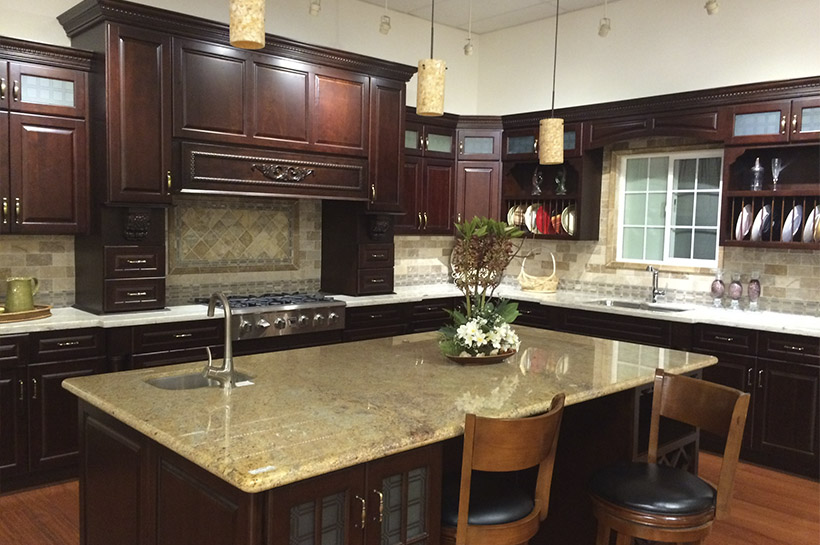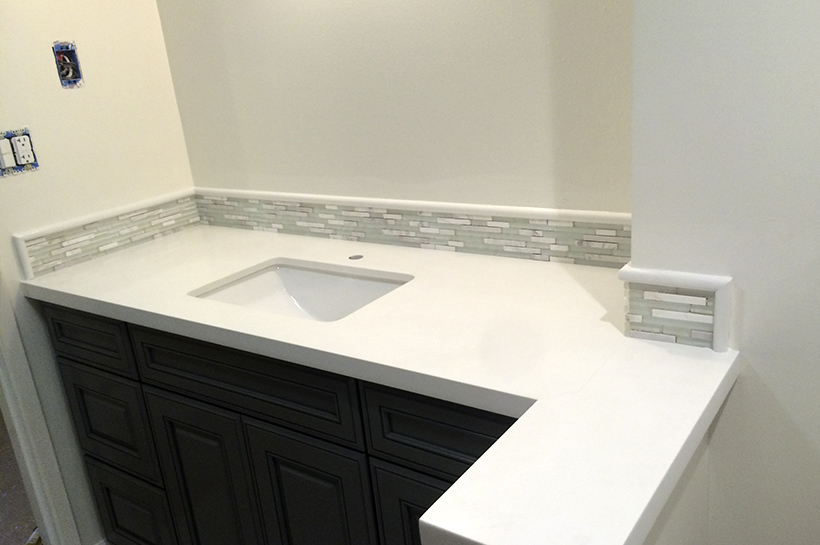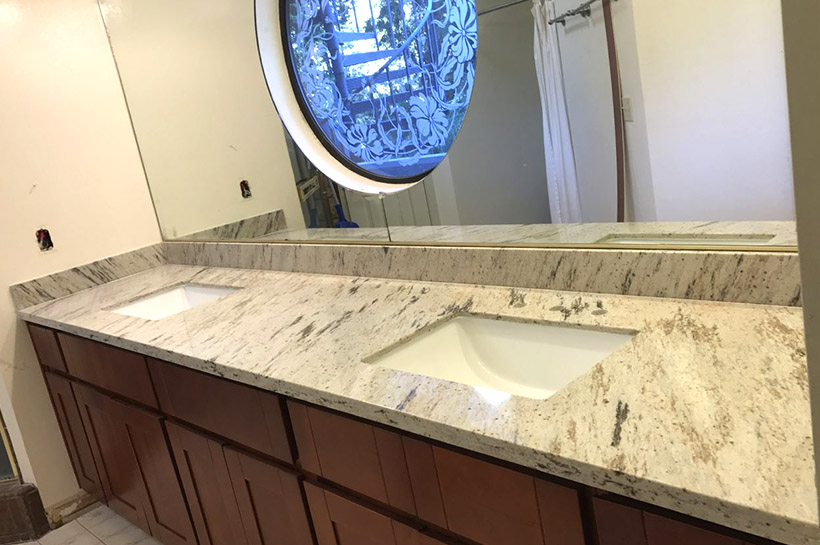

Granite, Quartz, Marble
What is Granite? Granite is a natural stone that's mined in large blocks, then cut into manageable slabs. After the slabs are polished, they are distributed to fabricating companies that fabricate and install your Countertops. Granite appeals to many people due to its scratch resistance and durability in the kitchen. Granite is porous, though, so it needs to be sealed for its protection.
Granite Counter Maintenance
Maintenance of a granite counter will include careful cleaning and periodic sealing to make sure it repels stains. Choose your cleaning agents carefully to make sure you don't damage the granite surface. If stains happen, reach for baking soda first to try to remove them. Make a paste with equal parts baking soda and hydrogen peroxide to remove a water stain. Try baking soda and water to attack an oil-based stain. Spread either mixture over the surface, cover it with a sheet of plastic wrap and allow it to work for a day or two before rinsing and wiping the granite.
Daily Cleaning of Granite Counters
Basic dish detergent is your go-to cleanser for granite. Dilute the soap with a little water, and apply it with a damp sponge or a microfiber cloth. Avoid getting the granite surface too wet, because standing water can discolor the granite. Rinse away the soap, and wipe down the counter carefully to dry it.
How Do You Reseal Granite?
Check to see if the granite needs resealing. Place a few drops of water on the counter and a few drops of oil. Wait 15 minutes and check the drops. If they have absorbed into the granite, it's time to seal.
Clean the counter 24 hours prior to sealing by mixing two tablespoons of isopropyl alcohol, one teaspoon of dishwashing detergent and one pint of cool water. Wash, rinse and polish with a microfiber cloth. Wait 24 hours.
Follow instructions for the sealant, testing it first on an inconspicuous area. Apply a small amount of sealant, rubbing it in evenly. Wait 15 to 20 minutes (according to product instructions), and check the area. As long as the granite is not discolored, proceed with sealing the entire counter in sections. After the absorption time elapses, wipe off extra sealant. Repeat with a second coat if recommended. Wait 48 hours for the granite to cure.
Granite countertops, like almost all natural stone surfaces, need to be sealed to prevent stains and liquid damages. How you seal your countertop will depend on what type of granite you choose. Lighter colored granite will need to be re-sealed more often than granite that is a darker color. Although, we seal after every installation. Central Coast Countertops recommends you to seal your Granite Countertops every 3-5months. How do you know it is time to reseal? Drop a few drops of water on your countertop and if you notice the drops being absorbed quickly, then its time to reseal.


Quartz countertops are man-made engineered stone countertops formed by combining around 90 percent ground quartz (a natural hard mineral) with eight to 10 percent resins, polymers, and pigments. This forms a very hard granite-like surface. The appearance depends on how the quartz is ground: coarsely ground quartz produces a flecked appearance, while finely ground quartz produces a smooth look.
What are the Major Brands of Quartz Countertops?
The Italian company Breton owns the patent to manufacture solid surfaces from quartz and resins. All other companies use that patent for their own brand of quartz countertops, including Silestone, Cambria, and CaesarStone,
What’s the Environmental impact of Quartz?
Light to moderate! Quartz is the second most abundant material in the earth’s crust (which is good), but the acrylic resins used in quartz countertops are petroleum by-products, and they often contain alumina trihydrate fillers made from bauxite ore, which is mined primarily under toxic conditions in developing countries. However, the countertops are still extremely durable and non-porous. Additionally, a few major brands including Formica, Wilsonart and Silestone have been certified by GreenGuard as low emitting. Other brands, like Cambria Quartz, are mined and made entirely in the USA.
What’s the Environmental impact of Quartz?
DO NOT USE OIL TO MAINTAIN QUARTZ